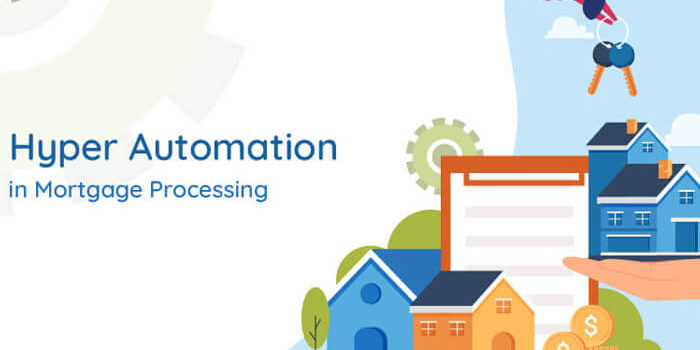The mortgage process is one of the most complex credit processes that is offered to customers. The process requires an in-depth analysis of both collaterals and customers. Since the data is processed manually that is why it is subjected to more errors and the process consumes a lot of time as well.
This era of advance technology has indicated that digitization of different processes is becoming the crucial need for human beings. Automation is becoming increasingly popular for automating business procedures. This can help the mortgage industry to accelerate its procedures. Automation of tedious mortgage processes minimizes the risk of negative reputation and loss of customers. The implementation of this automated IT solution facilitates in streamlining and optimizing the mortgage processes simultaneously.
Different industries, including retail, marketing, finance, and health industries are adopting automation in their businesses to increase their overall performance. The mortgage industry is also an area that is enticing immense attention from the technological world. From seamless loan distribution to faster processing of the entire process, mortgage process automation is becoming necessary.
The Need for Mortgage Process Automation
The operations associated with the mortgage industry are complex and more than 80% of the mortgage procedures continue to be paper-intensive or manual. Majority of the mortgage companies have to go through the extensive historic documents to determine whether a mortgagor is capable of repaying or not.
Due to these manual procedures, the operational efficiency of the mortgage industry is not improving which not only frustrate the employees but borrowers as well. Irrespective of the mortgage offering and loan processing for the customers, lenders/bankers face some of the following common issues:
- Manual processing of mortgage data consumes a lot of time, even months.
- Lack of automation strategies and digital expertise in the industry.
- Resources limitation for handling day to day mortgage and loan processing activities.
Fortunately, mortgage process automation is able to solve all the above-mentioned problems. Moreover, mortgage automation can also reduce the operational cost for the organizations employing this practice.
Benefits of Mortgage Processes Automation
Hype-automation facilitates the mortgage industry in several ways. However, the financial institutions and banks have to determine effective strategies through which hyper-automation can be deployed in the mortgage automation.
By setting up compliance practices and governance policies, the realized benefits can be provided to the customers. Following are some potential advantages of automation in mortgage processing.
Enhanced Productivity
Due to manual processing, employees lose their productivity. Once the mortgage processes are automated the productivity of employees increase. This enables employees to process mortgage applications instantly.
Improved Accuracy
In manual loan processing, the factor of human error is ever-present and mistakes made during mortgage processing are not easily identifiable and consume a lot of time to correct. Automated mortgage processes have the ability to produce error-free work in less time. This also improves the accuracy of the work.
Improved Customer Experience
Mortgage processing goes through a series of extensive steps including buyer availability, the workload on employees, processing and approvals, etc. Hyper-automation in mortgage processing can integrate its functions with cloud infrastructure and work continuously with no need for a brake.
The system ensures 24/7 processing of mortgage which ultimately leads to improved customer experience and satisfaction. Hyper automation incorporates predictable processes; around the closing date of the mortgage, the borrowers can fit into other plans. Hence, increasing the chances of timely and smooth closing along with customer satisfaction as well.
Easier Auditing
With mortgage processing automation, its leading processes, and documentation, the ability of the system to respond immediately to the risk can be increased, so that they can be mitigated on time for more cohesive and better compliance guidelines. Mortgage and loan processing is not a simple matter and the technology of hyper-automation will ensure that the audit process is completed on time without any hassle.
In mortgage process automation obligation of financial regulations are also taken into account and management does not need to worry about the fact that whether during mortgage processing, employees are following regulations or not.
Enhanced Scalability
Scalability is the potential factor that facilitates the mortgage industry to embrace machine-based automation. Hyper automation helps the employees in understanding various kinds of formats used in mortgage documents, for data extraction, document stacking, data analysis and better classification. This further reduces processing time and facilitates the mortgage firms to quickly respond to spikes in demand.
The benefits of hyper-automation are extensive and it also perfectly aligns with the needs of the mortgage industry. The adoption of mortgage processing automation can provide an opportunity for the firms to achieve long-term customer-centric goals along with increasing the overall productivity of the firm.
Connect with our team for high-performing, compliant, reliable, and cost-effective mortgage automation solutions. For more details, please check our RPA Services
Other Related Articles You Might Be Interested In
The Impact of RPA in Australia’s Mortgage Lending







